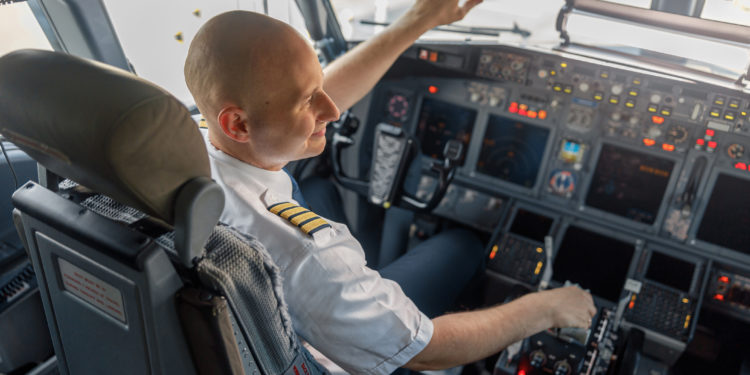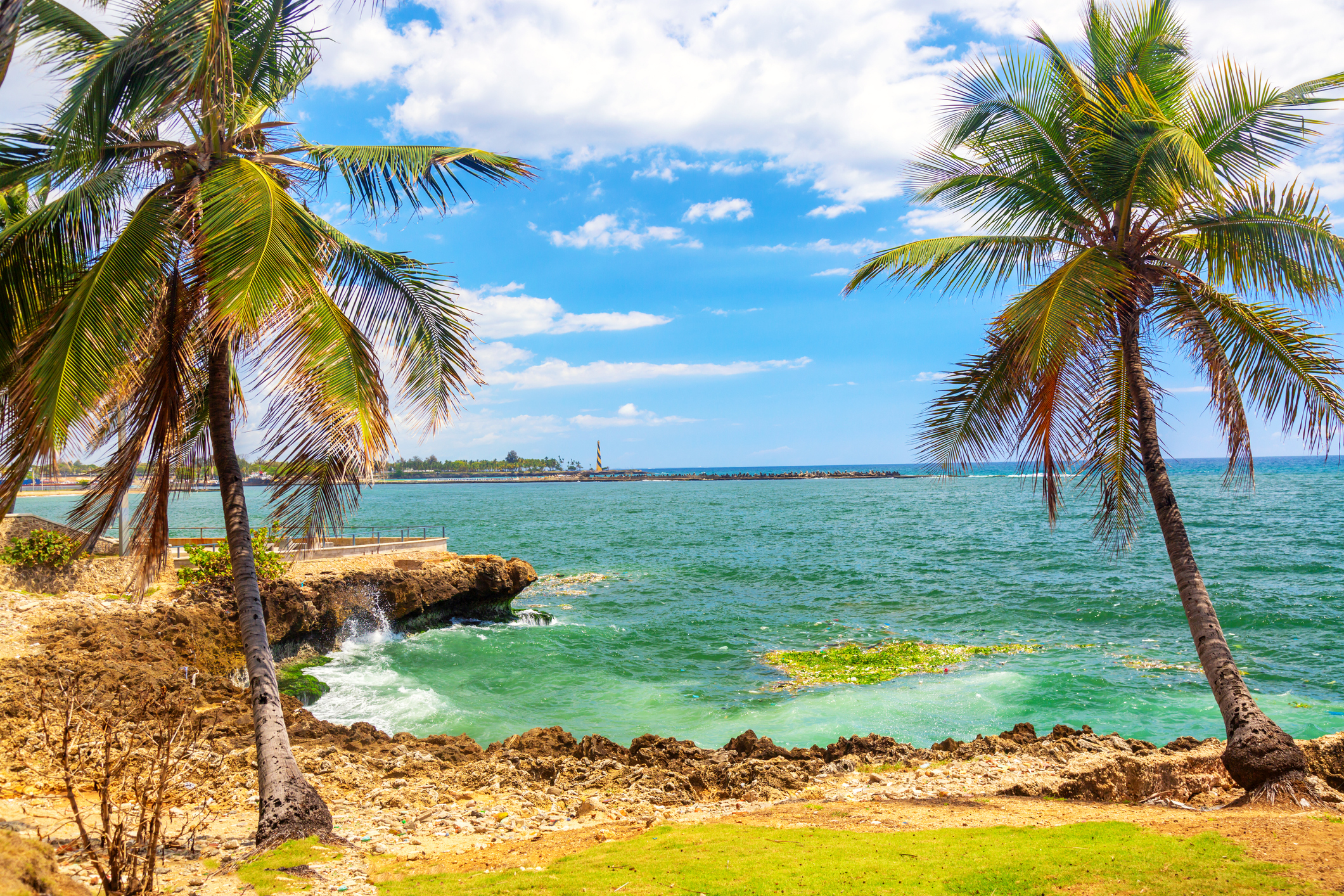Advertiser Disclosure: Eye of the Flyer, a division of Chatterbox Entertainment, Inc., is part of an affiliate sales network and and may earn compensation when a customer clicks on a link, when an application is approved, or when an account is opened. This relationship may impact how and where links appear on this site. This site does not include all financial companies or all available financial offers. Opinions, reviews, analyses & recommendations are the author’s alone, and have not been reviewed, endorsed, or approved by any of these entities. Some links on this page are affiliate or referral links. We may receive a commission or referral bonus for purchases or successful applications made during shopping sessions or signups initiated from clicking those links. The content on this page is accurate as of the posting date; however, some of the offers mentioned may have expired.
Well, this is an interesting take.
We’ve all heard about the ongoing pilot shortage. There simply aren’t enough available pilots to operate the demand for flights. Some pilots were furloughed, laid off, or took early retirement because of the COVID-19 pandemic.
Right? Isn’t that what we’ve been told?
Reddit member (Or “Redditor,” in social media parlance) Tough-Memory-5232 responded to a thread titled, “An Open Letter to Customers From Delta Pilots.”
Tough-Memory-5232’s husband flies for a cargo airline — and apparently isn’t getting any love from the commercial passenger carriers regarding jobs.
“There is no pilot shortage. Ask my husband who is a pilot or his union. The airlines are too picky and too slow to hire, plus they are just whining trying to get the government to give them more bailouts or change pilot rules whether it be required training, retirement age, etc which none of the pilots I know want. And to be clear, part 117 rest rules cover airline pilots but not cargo pilots. So my husband as a cargo pilot just laughs when he hears an airline pilot complaining about rest as they get plenty. He would love to be in their shoes, but again, even though he is well qualified, he hasn’t even been called for an Interview.”
I realize this comment came from Reddit (where some posts are subjective and not everything may be 100% fact.) So, I contacted someone who works for one of the four legacy airlines — and is very familiar with flight operations.
“I don’t think there’s a shortage of qualified pilots,” this person told me. “But the pipeline for hiring pilots has been broken for a while.”
My source explained that when people are hired as pilots, they don’t necessarily go directly into the cockpit and immediately start flying passenger flights.
Take, for example, a regional airline pilot who goes from flying smaller aircraft (such as CRJs) to something in a major airline’s fleet (i.e., 737s, A320s, you get the idea). The newly hired pilot must undergo training for the new airline, obtain a type rating, get familiar with company policies, etc.
“Plus, some airlines didn’t hire for a year and a half because of COVID,” my source said. “It’s a problem self-inflicted by the airlines. A lot of instructor pilots took early out packages and left the airlines. So, now we need to get new pilots for those positions. That takes time. Plus, other staffers who are part of the pilot hiring and training process are also needed. Simulator time is at a premium right now. I think the situation may take another year to resolve fully.”
Based on that, it seems there’s a shortage of available actually-hired-by-the-airline-and-ready-to-go-fly-for-them-right-now pilots. It sorts of seems like this is sort of an “employment chain” issue.
Other Airline Industry Personnel or Experts: What’s Your Take?
Pilots and other airline employees who read the blog: what do you think? Is there a genuine shortage of pilots? Or, as my contact said, the pipeline busted?
Maybe a little bit of both? Are the regional airlines intentionally delaying their pilots being hired by majors — as has been alleged?
All of the above?
I know there are probably many different opinions and sides to this. Please tell us your thoughts in the below Comments section!
Advertiser Disclosure: Eye of the Flyer, a division of Chatterbox Entertainment, Inc., is part of an affiliate sales network and and may earn compensation when a customer clicks on a link, when an application is approved, or when an account is opened. This relationship may impact how and where links appear on this site. This site does not include all financial companies or all available financial offers. Opinions, reviews, analyses & recommendations are the author’s alone, and have not been reviewed, endorsed, or approved by any of these entities. Some links on this page are affiliate or referral links. We may receive a commission or referral bonus for purchases or successful applications made during shopping sessions or signups initiated from clicking those links.












As an airline pilot I can assure you there is no shortage of pilots. There is a shortage of pay at the regionals and that’s slightly being fixed. The majors have their pick. I referred a candidate to my airline. A wonderful individual with a perfect training record / background and for some reason he didn’t get hired. I know many talented individuals who didn’t get on to the majors I know many mediocre ones who got on. It’s so inconsistent ! Airline management ALWAYS want their cake and eat it too. They want to gov’t to make policies that support their laziness and greed. They want gov’t money and they want no competitors. In no way would airlines want to do their part to staff. Let’s stay understaffed and hope the govt abides to our wishes.
The major shortage is actually in the support staff. Ground crew , flight attendants, gate agents and vendors. ATC is a huge challenge right now as they are shorter staffed than anyone.
Thanks for the insight, SMR!
100% correct.
It’s amazing the airlines can’t find baggage handlers for $15/hr to work long hours on hot ramps around dangerous and loud equipment, lifting heavy bags all day!
And who wouldn’t want to make $15/hr to get screamed at every day by passengers upset with weather, mechanical issues and poor airline staffing (all outside your control) while rushing between gates to greet flights, answer questions and provide top notch service?
The issues are strictly economic. If you pay well and offer competitive benefits, you’ll have applicants for these positions. Same goes for mechanics, reservation agents, flight attendants and pilots. All the way up the chain. But if you can make more money and have a flexible schedule driving for Uber whenever you feel like it and earn 2-4x more, yes, the hiring pool will shallow.
This is an American wake-up call. People aren’t satisfied being the working poor, anymore.
I cannot claim to know but the only thing I’ll say is this: For United to be spending the $$ to open up their own flight school tells me something about the shortage is real.
Imagine the NBA saying…we have a shortage of basketball players so we’re going to open our own league for college-age players? They wouldn’t voluntarily because its free to have the NCAA do it for them. Kinda the same thing here…
United opened up that training center as a diversity and inclusion initiative for females and people of color to enter the flight deck.
In my opinion, absolutely no shortage of pilots. I quit flying in 2020 because the schedule they were trying to force on me was ridiculous. Would I and many others go back? Absolutely. But these companies would have to reduce schedule workloads by a large amount to consider it.
UNITED: I have a solution to your pilot shortage: Increase pilot salaries if you want to KEEP your most VALUED pilots who’ve had many years with United. This is a problem United Airlines has created. United needs to learn from their mistakes before it becomes a crisis and they go out of business, because without experienced pilots you don’t have an airlines! I know I don’t want to fly with a TRAINEE PILOT.
I saw on social media a pilot who went from a regional to the right seat on a United 777. That seems a heck of a leap.
Just a leap in perceived prestige. Really, the bigger they are, the easier they are to fly.
It was probably harder for that pilot to fly the CRJ 200, turboprop or E175 they were typed in before. The 777 is a dream.
Taylor, very valid points. I don’t think passengers in the back want to know that their pilot up front was chosen for their race or gender! They want the most qualified person flying the plane!
Something like the NBA G League (formerly known as the NBA Development League)?
But the NBA DOES have a training program of sorts. It’s called the G League
My airline, a major, is offering 250 jobs per month but only about 200 are accepting the offer. The training pipeline is at wide open throttle.
As a line check pilot (LCP) every trip this year has training on it. Every single trip!
I don’t know what else we could do to get pilots qualified quicker.
Do you work at Spirit, Frontier or Alleigant?
Delta, United, FedEx, UPS, American and Southwest have no problem finding qualified applicants. I have numerous buddies at all of the above, many are check pilots and involved in hiring.
You get what you pay for, and professionals shouldn’t have to work at a discount. I wouldn’t go looking for the cheapest doctor if my kid was sick, I’d look for the most qualified.
If the airline can’t attract qualified pilots into their hiring pool, they should make it a more attractive proposition by paying market rates.
I can confirm the content of this post as a pilot at a major airline. There isn’t a shortage problem, but a movement problem that is creating a lack of people ready to sit in the seat and fly today. The upward movement, subsequent training and lack of hiring during covid combined with extremely aggressive recovery schedules has created a perceived shortage of pilots. If the dust could settle and everyone could be magically trained to be in the seat they should respectively hold, there would be no issue with staffing.
Pilot shortages initially a reality since post COVID considering todays current travel demands. As a regional captain my observation is a lot of our company’s pilot group has disappeared to legacy airline hiring frenzy and other mainline carriers. If you take our pilots you’ll have to take our routes too because we no longer have the pilots to fly our routes being awarded less pairings. While legacy mainline hiring regional pilots they are also in scope to buy/receive 100+ planes for growth. Well….whose gonna fly those? Shortage not in pilot population but better put its considering where they all went. The pipeline is just more utilized upstream rather than moderately Paced down stream. With no clarity to where our economy is going it will be interesting to see where junior pilots will end up if travel demands fall. If it does you’ll no longer have the so called pilot shortage will you?
I’m a captain at a legacy airline and I’ve been flying for over 22 years.
There has never, EVER been a pilot shortage in those 22 years. 2000-2013 wages were absurdly low – you could make more part time bartending or driving for Uber, by a factor of 3x, than you could flying for any regional airline in a 20 million dollar jet.
In 2013-14 when the age 65 rule caught up things started to improve but you could still make more in most skilled labor professions (and many unskilled) than you could flying. I was making 28K a year in the San Francisco Bay area (well below the poverty line due to cost of living) with over 6000 hours and 13 years experience. I was not alone, many of my coworkers were in the same boat, highly skilled professionals with clean backgrounds. I had five jobs and no days off, just to survive.
Things had been improving – until covid and rampant inflation – now we are once again going backward. Airlines have been stalling on contract negotiations since pre-covid. Stalling saves them money and hurts labor. Airlines have record revenues once again after American taxpayers bailed them out. It’s time for airlines to pay what professional pilots are worth and negotiate in good faith.
There is NO pilot shortage. Any airline paying well with fair work rules has a DEEP pool of applicants from all over the world and can take their pick. Even well paying regionals can, too.
Ask any airline pilot who’s been in this industry for awhile and you’ll hear the exact same.
As with everything in life, there are multiple components to the problem. The union line is there is no pilot shortage, there’s a pay shortage and I’m inclined to agree. More to the point, there’s a shortage of qualified pilots willing to fly for substandard wages at the regional carriers which is where much of the current schedule problems are coming from. Regional pilots are moving up and there aren’t people willing to go to them to backfill. The added insult at regional airlines, is less pay does not equal less work: you frequently work longer days with more legs and shorter overnights than mainline carriers. All of that while potentially paying off a quarter-million dollars in student loans (depending on the school you went to). Hardly sounds attractive does it?
Some of the regionals are stepping up and increasing first-year pay rates (which are typically very low), and even offering things like captain’s pay for first officers just to encourage folks to come and hopefully stay. But the other problem is the Fee-for-departure model which means in an industry with very little job security already, a regional carrier can be here today and gone tomorrow. Just look at Comair or Expressjet as examples. At one point, they were the best regionals out there with people opting to make them their aviation careers; now they’re gone. Airlines like Skywest and Republic know they can’t attract experienced pilots with their payrates and work rules so that’s why they are attempting to get the law changed, or in the case of Skywest, circumvent it outright by opening up their “charter” wing.
Yes, some of the legacy and mainline carriers made things worse. Delta and Southwest had many early outs during the pandemic and American furloughed. That takes time to get people back on property. United worked with their pilots and avoided a furlough so they were able to get up to speed much more quickly. Though they are still playing catch up on new training, they haven’t seen the struggles of their peers. It’s still mostly at the regional level – the flights being canceled are those operated by regionals for their mainline bosses.
As to the “too picky” comment. That’s a tougher call. In my opinion, there’s been a positive change in the industry in a move away from the old-fashioned, John Wayne attitude and towards a recognition that a crew environment needs to work together to operate safely and the key to that is good communication; the Captain still has the final say, but they aren’t a dictator. Over my long career I’ve flown with plenty of “good sticks” that were still a nightmare to sit next to for four days. The modern interview process absolutely takes that “trip view” into account. One of the questions the interviewer asks themselves is, is this someone I want to be on a long trip with? Is a candidate someone who is able to check their ego and accept that the person sitting next to them, be they male, female, non-binary, white, black, red or blue is also qualified to be there and part of the team? Is the candidate someone who recognizes and learns from their own mistakes in the past or blames everyone but themselves? Sometimes the person with 10000+ hours of doing things “their way” is not the better choice over the lower time (though still experienced) pilot.
So what’s the solution? Money helps. In the absence of more money, quality of life improvements (ideally both). Age 67 is a Band-aid at best. I’m personally fine with the idea, but I get why people don’t like it. In the end though, it only kicks the can down the road two years and we’ll be right back where we are today if the first two things aren’t addressed.
I am a cargo pilot now but was a passenger pilot for 22 years of my career. I have flown for different airlines in my 33 year career and still active. I completely agree there is a pilot shortage. It is true that in the past, salaries were ridiculously low, especially in the regionals. That has significantly improved and most airlines are in the process of increasing salaries even more. Most airlines keep losing pilots to the majors at an alarming rate, even with salary improvements. Route increases and aircraft purchases are at a all time high. In my long career, have never seen so much hiring of pilots in the United States as in the present time. Despite the fact that airlines took money from the government and were paying low salaries, all that is a thing of the past. Yet, flight cancellations continue by the thousands due to pilot shortage. I have heard from pilots of the two major cargo carriers in the United States, the ones who pay the big money and they have had to cancel flights due to no pilot availability. And that they have been overworked like never before. Big airports continue cancelling flights blaming weather or computer glitches, when you don’t see any weather around and see dozens of planes sitting on the tarmac ready to fly, but no pilots to fly them are available. Increasing retirement aid is only a BandAid but will help. The staffing shortage is real, very real, for pilots and flight attendants as well. A recently graduate pilot cannot be hired into most airlines until they accumulate 1500 hours of experience. A rule that is great for safety but that does not guarantee a high quality pilot necessarily. I was hired fresh from Aviation school into the right seat of an airliner and I never had any incidents or issues. Many big airlines in other countries have their own academies and they put their pilots fresh from school into the right seat of an airliner, at least those who pass the rigorous training and are ready. . Here in the States, they just need to show the public and reassure them they are doing something to increase safety, even if it makes no sense. Most airlines have dropped the requirement of a college degree for pilots, proof that they are not finding enough candidates. A college degree has nothing to do with being a good pilot or not. Another stupid rule that could be applied back in the day, but is being dropped due to, yes, the pilot shortage and lack of candidates with a college degree.
As a Major Airline pilot and commuter, something I’ve realized as I’ve had conversations on various different airline flight decks is that there is a pilot shuffle simultaneously happening. The opportunity to switch airlines in the current hiring environment is exacerbating the airline industry training capacity problems mentioned above by Steve and others.
Post covid, almost every airline is hiring, and even poaching from other Majors. I’ve noted that guys who are hired with one Major or have even been a few years with one airline, now have the opportunity to switch to a different Major for perhaps better pay, better domicile opportunities, perceived upgrade timelines, or a more diverse fleet of aircraft. The vacancies and training timelines contribute to the training pipeline capacity problems and may appear to outsiders as a shortage.
Gone are the days of an endless supply of military pilots being turned out to fill the Airlines. This led to more pilots available than jobs. Thus the low pay. Resulting in will fly for food jobs, for several decades. Only the senior pukes at the majors, whether passenger or cargo made real money.
This led to the pipeline drying up. Smart people don’t spend gobs of money to go into a career with low pay, sporadic employment prospects, little chance of career progression, etc. What happened is those less smart (lower IQ) became pilots. Think the Colgan Air crash. Adequate prefrontal cortex abilities (fluid intelligence) and crystalized intelligence ( stored memories/information) are as important as hours flown. Probably more so. The Colgan Captain had more than the now required 1500 hours and was a multiple checkride failure with abhorrent ability.
But you get what you pay for. The military ruthlessly needs out people by using IQ tests which are theoretically illegal in the civilian workplace.
Now with a cohort retiring en masse over the next few years, they’ve got a problem. No free training from the military, you have to pay for it. The majors will have plenty of applicants, UPS and FedEx too as they pay the big bucks. But below that there will be a real shortage of pilots. What will the Biz Jet world do? They will get the leftovers and there will be empty seats. They will have to pay more and there will be a contraction in the industry.
Demographics will play a part as well. The last few generations of Americans that would normally fill the military and airline pipeline failed to procreate and the fertility rate is well below replacement and falling. Only third works immigrants are filling the gap. They come without funds or the language and are not headed for pilot jobs. There will be a general labor shortage in many areas that require high levels of competence. Engineers, A & P mechanics, simulator technicians, etc.